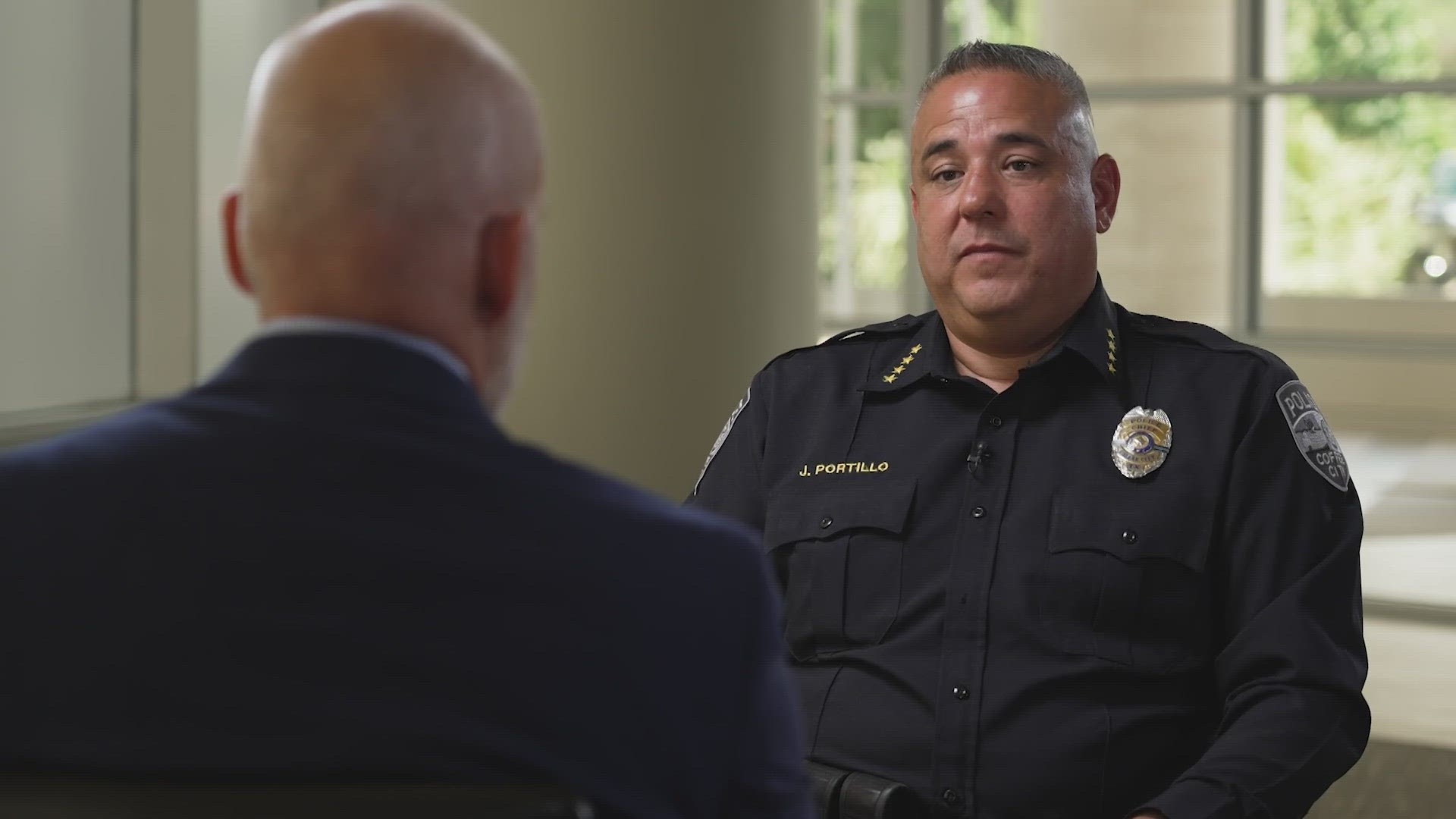HOUSTON — The head of the Coffee City Police Department has suspended a division after KHOU 11 Investigates questioned its legality.
The Henderson County town with barely 250 residents has 12 full-time officers and 38 reserves. The 50 total officers are five times the number of cops than any other Texas town its size, according to Texas Commission on Law Enforcement records.
But a half-dozen of the full-time officers don’t even work in Coffee City, Texas. Instead, they work from home in Houston, more than three hours and 200 miles away.
“It’s hard to believe that that is happening,” said Greg Fremin, a retired Houston police captain and lecturer at Sam Houston State University’s College of Criminal Justice.
“I’ve never seen anything like that, there are 100 questions that come to my mind,” Fremin said.
The officers were part of a warrant division, according to a department email KHOU 11 Investigates obtained.
“The division is housed out of the Houston area so there is no need to go to Coffee City,” Chief JohnJay Portillo stated in the email. “You will be spending 95% of your time on the phone calling people who have outstanding warrants through the Coffee City Municipal Court and collecting failure to appear fines and outstanding traffic fines.”
Portillo added in an interview: “It gives them the ability to go work an extra job.”
Read parts one and two of this investigation:
Portillo acknowledged warrant officers were listed on the books as full-time because the state's Private Security Act only allows full-time cops to work off-duty security jobs. Some Coffee City warrant officers regularly do just that at an apartment complex on Houston’s southeast side. They make more than $50 an hour.
“They work two, three days a week, four days a week,” Portillo said.
But is it all above board? The Private Security Act requires peace officers to work at least 32 hours a week and be paid the minimum wage or higher. But Coffee City’s warrant division is performance-based—officers are paid $150 for every failure to appear case they collect.
“They’re basically bounty hunters in a way,” Fremin said.
He said it amounts to a commission for collecting fines.
“It doesn’t make any sense to me, and from an ethical perspective, it just screams questions about the legitimacy of what they're doing,” Fremin said.
When asked whether the practice was legal, Chief Portillo responded, “I believe so.”
But two days after our interview, Coffee City Police sent an email to warrant detectives rescinding full-time status and reassigning them as reserves.
“Due to unforeseen difficulties the program has been ‘suspended’ until such time as I can make sure that we are in compliance with labor laws,” wrote Captain Raymond Stewart in the e-mail.
The Texas Department of Public Safety is the state agency in charge of enforcing any extra job violations. The Texas Commission on Law Enforcement has the power to suspend or revoke a peace officer’s license. A TCOLE spokesperson confirmed the agency has an open investigation into the Coffee City Police Department but did not provide details as to the nature of the investigation.

